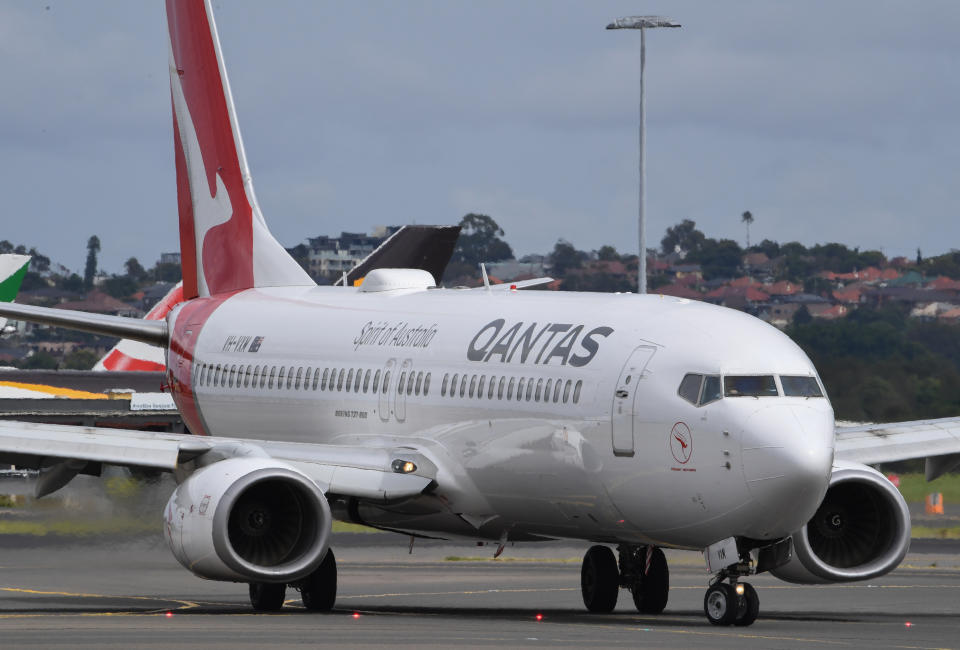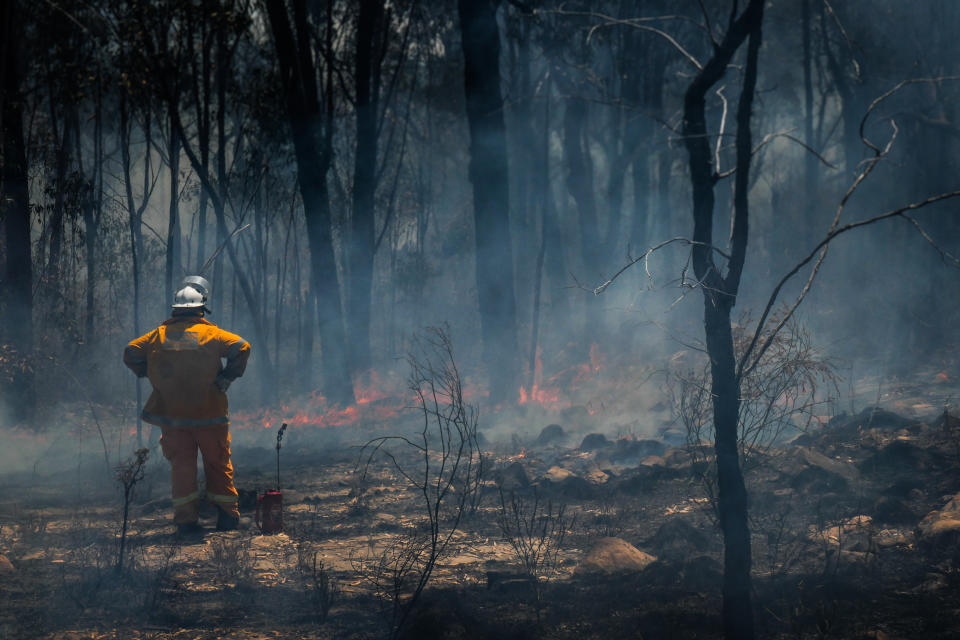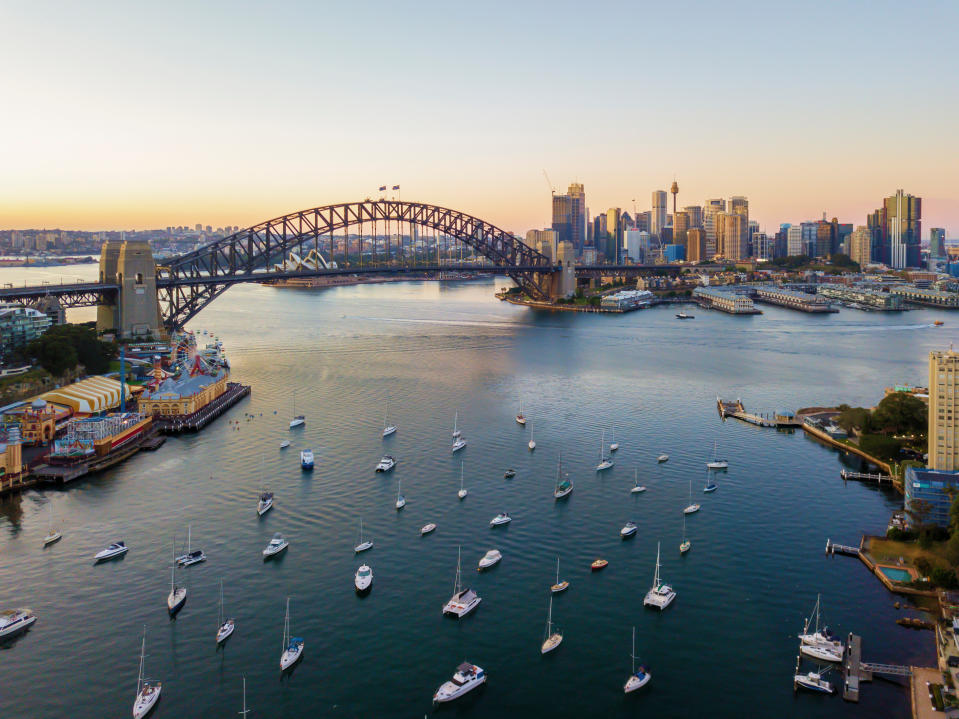Should you be cancelling all travel plans due to the coronavirus

As a result of travel bans and restrictions within Australia and in different countries around the world the travel industry has taken a huge hit, with thousands of flights cancelled globally.
If you had plans to travel either internationally or domestically in the next month we’ve put together some of the most current advice to help you make an informed decision.
What is the current travel advice?
Australia’s current travel ban list includes Italy, China, Iran and South Korea, with Japan, Hong Kong, Cambodia, Singapore, Thailand, Indonesia, Mongolia deemed ‘moderate-’ or ‘high-risk’.
Scott Morrison on Wednesday announced tighter restrictions for Australia amid a surge in coronavirus cases, advising all Australians not to travel abroad.
The prime minister said the travel ban was the first time such restrictions had been advised in the nation’s history.
“Do not go overseas. That is very clear that instruction,” he said at a press conference.
Then on Thursday the Prime Minister tightened Australia’s borders even further, officially closing them to non-citizens and non-residents.
On the same day Qantas announced the airline would ground all international flights and reduce its domestic capacity by 60 per cent from March until at least May, after Virgin Australia also announced Wednesday it will suspend all international flights and will extend cuts to domestic routes from March 30 to June 14.
Jetstar Asia will also suspend all flights from 23 March to at least 15 April, while Jetstar Japan has suspended international flights and Jetstar Pacific has suspended international flights.
If you’re travelling or returning to Australia, you'll now be required to self-isolate for 14 days. This applies to all travellers, including Australian citizens. For more details see the Australian Border Force website.
Should I cancel my travel plans?
If your flight hasn’t already been cancelled and you are still overseas or thinking about going on a trip, Smart Traveller has issued the following warnings which you should take into account when considering your need to travel.
1. You may be more exposed to contracting COVID-19 while travelling overseas. You may come in contact with more people than usual, including during long-haul flights and in crowded airports. Health care systems in some countries will come under strain and may not be as well-equipped as Australia’s. If you’re sick, you may not have your normal support networks.
2. Overseas travel has become more complex and unpredictable. Many countries are introducing entry or movement restrictions. These are changing often and quickly. Your travel plans may be disrupted. You may be placed in quarantine or denied entry to some countries, and you may need to self-quarantine on return to Australia. Think about what this might mean for your health, and your family, work or study responsibilities.

Can I cancel my flight?
Many airlines and tour companies have revised their cancellation and change policies in the light of the coronavirus outbreak.
Qantas and Jetstar have announced customers with bookings on any domestic or international flight until May 31, who no longer wish to travel, can cancel their flight and retain the value of the booking as a travel credit voucher. This needs to be processed by March 31.
Virgin Australia and Tigerair Australia are waiving change fees for domestic and international bookings fortravel up until June 30, 2020. This includes changes to dates and destinations, with a maximum of one change per domestic booking. Payment well be required for any fare difference or applicable taxes.

How to protect yourself from coronavirus on a plane
We know some people may need to travel - whether it’s to get home to family, or part of your job - and may still find themselves having to board a plane.
Apparently the best place to sit on a plane to avoid contact with potential infectious germs is the window seat.
Researchers at Emory University in Atlanta, Georgia found those who were seated in the window in general had less interaction with other passengers – beyond those sitting within two rows of them – which limited their chances of interacting with an infected person, researchers said.

The medical advisor of the International Air Transport Association, David Powell, stressed cabin air was purified with surgical-grade filters and as such the risk of catching a serious viral infection on a plane is ‘low’.
“The air supply to a modern airliner is very different from a cinema or an office building,” he told Bloomberg.
“That supplied air is guaranteed to be 99.97 per cent — or better — free of viruses and other particles. So the risk, if there is one, does not come from the supplied air. It comes from other people.”
Should I cancel domestic travel?
According to Prime Minister Scott Morrison, “domestic air travel is low risk.” However, he adds there are “parts of this country that it would not be wise for people to visit” (such as remote indigenous communities).”
“When you are in a public place you don’t have control over how clean it is, so you are increasing the risk of catching germs,” Dr Fiona Stanaway, clinical epidemiologist at The University of Sydney School of Public Health, tells Yahoo Lifestyle.
“If you’re driving somewhere in a car and staying a in a holiday house, you can control the environment. But staying in hotels, visiting museums and tourist spots increases the risk.”
Is it safe to travel within Australia?
When it comes to holidaying within Australia, no travel bans are currently in place, however a ban non-essential gatherings of over 500 people has seen the cancellation of plenty of popular events.
The state of Victoria has also declared a state of emergency for the next four weeks.
And at this stage people are still being urged to practice ‘social distancing’ and work from home if possible, with cases continuing to climb in Australia. As of March 20 there were over 700 confirmed cases of coronavirus in the country.
Of course Australia’s tourism industry had already taken a huge economic hit due to the catastrophic bushfires around the country mere months ago. A Victorian survey found even operators in towns outside fire-affected areas were reporting a cancellation rate of between 10 and 60 per cent.
Add to that the current coronavirus outbreak and many Aussie tourist towns are worried of the long-term impact, as many travellers are reconsidering their travel plans.
Residents of Cobargo, NSW, recently spoke to Channel Nine reporters about the coronavirus with one local saying, “Don’t bring it here, but if you’re well, please come.”

Semi-retired couple Jennifer Williams and Michael Boyd spoke to the ABC recently about their plan to head on a six-week holiday to the south coast and Kangaroo Island, South Australia.
Jennifer stressed they were conscious of not contributing to the spread of coronavirus by maintaining good hygiene practices on the road.
“I work in a hospital so am very aware that hand washing is the best thing you can do,” she said, adding they were also planning to pack extra cleaning products, like hand sanitiser.
They are confident they can contribute to regional communities while managing coronavirus risks.
If I don’t cancel my domestic travel, what precautions should I take?
”If you are in an airport or similar sort of public space, avoid touching things as much as possible,” says Dr Stanaway. “Use contactless credit card instead of cash. Although you’re still touching your credit card which has been touched by others.”
“If possible, wash your hands after touching anything. Hand sanitizer with an alcohol level of 60 per cent or more is a good alternative if you can’t access a sink.”
“Go bush. Being outside in nature is the best way reduce risk at the moment. If you want to support local cafes or restaurants, consider getting takeaway rather than sitting on crowded tables and in close proximity to other people.”
Click Frenzy Travel’s ‘Places in Need’ encourages domestic travel
It is looking more and more likely that 2020 will become the year of domestic travel, once it’s deemed safer to do so.
With the travel sector decimated by coronavirus and prior to that, the bushfires, the much-loved Click Frenzy Travel is also taking on a new identity, with the aim of boosting support for travel businesses in need.
“It would be ludicrous to proceed with Click Frenzy Travel as though it is business as usual,” Grant Arnott, Managing Director of Click Frenzy, said.

“Commercially, we should cancel altogether, but out of the carnage we see an opportunity for us to do something good for the many businesses in dire straits. We’re ditching our traditional format and we’re aiming to give those struggling businesses a boost via Click Frenzy Places in Need.”
Places in Need will shine a spotlight on Australia’s little-known secrets and stunning treasures to help boost local travel. Secondly, it will provide deals for destinations that shoppers can redeem once it’s been deemed safe to travel.
“Let’s regrow. No-one needs to travel tomorrow, but this is an opportunity for Australians to look at the many amazing destinations available, with some incredible offers for forward bookings,” he added.
Some of the deal highlights include:
Lakes Entrance (VIC): Stay 3 nights and pay for 2 at Waverley House Cottages
Oxley (VIC): Book 2 nights and get the 3rd night free at Yarranungara Yurt Retreat
Mansfield (VIC): Adults camp overnight near lions and meerkats for child prices ($45) at Mansfield Zoo
Kangaroo Island (SA):
Book 3 nights and get the 4th night free at Aurora Ozone Hotel.
Penneshaw Beach Motel accommodation is offering deals, overlooking magnificent Penneshaw Beach.
Jervis Bay (NSW): save $400 at the luxury White Sand Jervis Bay accommodation
Bungendore (NSW): Purchase a tasting 6 pack of Lark Hill Wines for $150 (RRP $180) and go into the draw to win one of 4 private tours
Bundanoon (NSW): Book a weekend at Fulford Folly and receive a $100 voucher to spend locally
Fitzroy Falls (NSW): Book now and get your 3rd night free at Redleaf Carriages
This story has been updated to include the latest recommendations on overseas travel.

 Yahoo Lifestyle
Yahoo Lifestyle 




